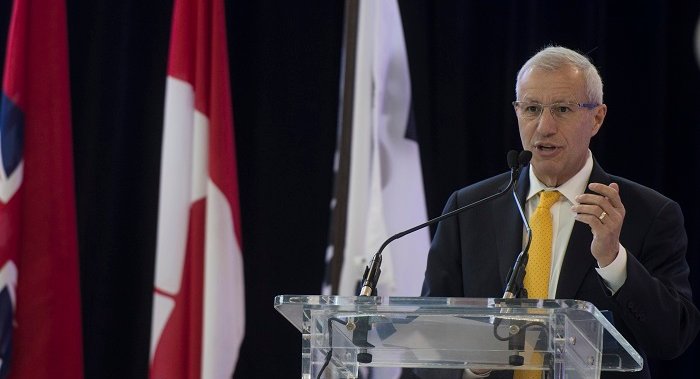It’s not that Ford is running for cover. He merely sits in his seat, rising only to redirect almost all opposition questions to a cabinet minister who provides cover for him.
Teachers’ strike? Transit reversals? Autism troubles? Patronage scandals?
The premier almost always refuses to answer. On rare occasions, if poked or provoked, prodded or piqued, Ford deigns to respond personally.
But it is the exception that proves the rule: stonewalling and squirming in his seat are his first line of defence.
Only when reassured that the question period rotation has reverted to friendly queries from his fellow Tories will Ford cheerfully engage. With 73 Progressive Conservatives (including the speaker) in the 124-seat legislature, 40 New Democrats, only five Liberals (now lacking official party status) and a single Green MPP, the majority Tories get to ask a disproportionate share of pretend questions of the premier.
Ford relishes a softball. As the scripted question is being asked by a well-rehearsed PC backbencher, the premier sneaks a peak at the cheat sheet prepared by his staff, refreshes his memory, and regurgitates the pre-arranged reply.
He imagines it a dialogue of the deft — two Tories talking to each other in public on the public dime. But when a New Democrat takes the floor, Ford becomes deaf to any dialogue with the opposition, for whom question period was first conceived.
At his early news conferences, Ford refused to take questions unless reporters lined up obediently. He ended the encounters by basking in the conspicuous applause of his paid PC staff, until journalists shamed him into curtailing the bizarre theatrics.
The applause and cheers followed him to the legislature during his first year in power, with backbench MPPs and cabinet ministers leaping to their feet a dozen times a day for standing ovations that took the breath — and their dignity — away. Only when
Speaker Ted Arnott penned a strong public critique about “contrived standing ovations” did Ford’s Tories relent.





